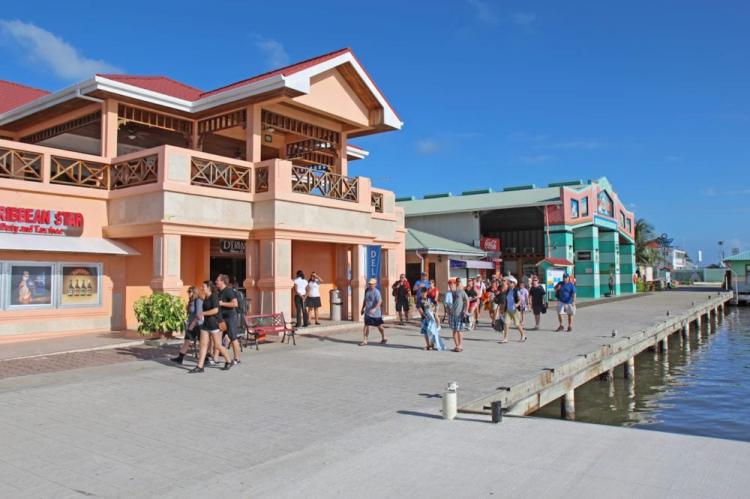The Ripple Effect of U.S. Economic Sentiment: Implications for the Caribbean and Belize
By: Omar Silva
Editor / Publisher : National Perspective Bz – Digital 2025
Belize City: Sunday 2nd February 2025
Introduction
The economic mood in the United States has long had a profound impact on the economies of the Caribbean, including Belize. Whether driven by inflation concerns, interest rate adjustments, or consumer confidence, shifts in U.S. sentiment trigger ripple effects in trade, tourism, remittances, and investment flows. With the U.S. grappling with fluctuating consumer sentiment amid economic uncertainty, it is imperative for Belizean policymakers, business leaders, and households to understand and prepare for the potential consequences.
The Consumer Sentiment Factor
Consumer sentiment—a key indicator of economic confidence in the U.S.—determines spending habits and financial decisions. When sentiment is high, consumers are more likely to travel, invest, and purchase goods from abroad, benefiting economies reliant on U.S. visitors and trade. Conversely, during downturns, Americans cut back on discretionary spending, reducing tourism, imports, and remittances to the Caribbean.
According to recent surveys, U.S. consumer confidence has been volatile, driven by concerns over inflation, Federal Reserve policies, and the cost of living. This uncertainty could mean reduced spending on travel and imported goods, directly affecting Belize's service sector and export industries.
Tourism: A Fragile Dependency
Tourism remains one of Belize's primary economic drivers, with a significant portion of visitors coming from the United States. Any dip in U.S. consumer sentiment—whether due to rising airfares, economic fears, or shifting priorities—translates into fewer tourist arrivals. The COVID-19 pandemic provided a stark example of how external shocks can cripple the industry, and while Belize saw a recovery in visitor numbers, a sustained economic slowdown in the U.S. could once again place strain on the sector.
Additionally, luxury spending, which fuels high-end tourism, may decline if middle- and upper-class American travelers feel financially squeezed. This could affect Belize's premium resorts, adventure tourism sector, and cruise ship arrivals.
Remittances: A Financial Lifeline Under Threat
A large portion of Belizean families depend on remittances from relatives in the United States. During periods of economic prosperity, migrant workers in the U.S. are able to send higher amounts back home. However, when job security weakens, wages stagnate, or inflation erodes disposable income, remittance flows diminish.
If U.S. economic uncertainty persists, Belizeans receiving financial support from abroad may struggle to cover living expenses, particularly in an inflationary environment where the cost of food, rent, and transportation is rising. A drop in remittances could also have a knock-on effect on local businesses, as consumer spending contracts.
Investment and Trade Risks
Belize's trade and investment environment is also vulnerable to shifts in U.S. economic sentiment. When confidence is high, foreign direct investment (FDI) flows into sectors such as tourism, real estate, and financial services. Conversely, in times of uncertainty, American investors may adopt a more cautious approach, delaying or withdrawing capital commitments.
Additionally, Belizean exports—such as seafood, citrus, and sugar—depend heavily on U.S. demand. If economic uncertainty leads to weaker purchasing power or changes in trade policies, Belizean producers could face reduced orders or lower prices for their goods.
Fiscal and Monetary Policy Considerations
Belize's policymakers must navigate these challenges carefully, ensuring that economic stability is maintained despite external pressures. Key strategies include:
- Diversification of Trade Partners: Expanding Belize’s economic ties beyond the U.S. to reduce dependency on a single market.
- Strengthening Domestic Resilience: Encouraging local production, food security, and entrepreneurship to counterbalance external shocks.
- Monitoring Inflation and Interest Rates: Ensuring that Belizean businesses and households are prepared for fluctuations in borrowing costs linked to U.S. Federal Reserve policies.
Conclusion
The U.S. remains a dominant force in shaping Belize’s economic trajectory, with consumer sentiment playing a critical role in determining financial inflows and trade activity. As the global economy grapples with uncertainty, Belize must adopt a proactive stance—mitigating risks through diversification, strengthening economic buffers, and fostering a sustainable investment climate. Understanding the direct and indirect impacts of U.S. economic sentiment will be crucial for Belize’s long-term economic security and growth.
- Log in to post comments

